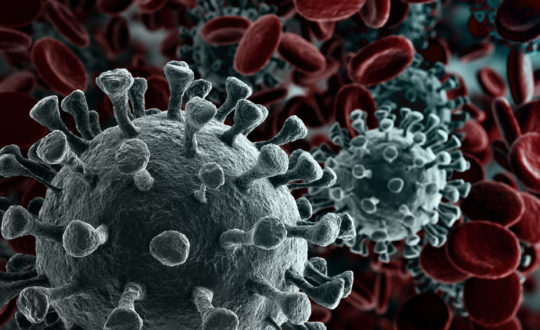
By RICK BRUNDRETT
Among the provisions in Gov. Henry McMaster’s emergency orders is one allowing the state health department to confine people infected with the coronavirus in their homes or other private or public places.
Although the provision hasn’t been enforced to date, it’s part of the 2002 Emergency Health Powers Act (EHPA).
Those who don’t comply with the S.C. Department of Health and Environmental Control’s rules could face a felony charge carrying a maximum penalty of 30 days in jail and a $1,000 fine. Anyone visiting people in isolation or quarantine could face the same felony penalty if not authorized by DHEC to do so.
Since the rapid spread of the coronavirus in South Carolina, The Nerve has pointed out extraordinary government powers at the state and local levels.
The EHPA defines isolation as the “separation and confinement” of someone who is infected or suspected to be infected with a contagious disease based on “signs, symptoms, or laboratory criteria.” A quarantine is described as “compulsory physical separation, including restriction of movement,” of groups of healthy people who have been “potentially exposed” to a contagious disease.
The law, among other things, allows DHEC to isolate or quarantine someone who is “unable or unwilling for any reason” to get vaccinations or treatment for a contagious disease. The DHEC director or his designee can issue an emergency order isolating or quarantining a person, subject to court review.
If isolation or quarantine is required, DHEC is supposed to make sure that affected persons be provided:
- Adequate food;
- Clothing;
- Shelter;
- Means of communication with those outside the confined settings;
- Medication; and
- Competent medical care.
But the EHPA doesn’t specify the standards of care or who would pay for incurred expenses. The law requires that the “least restrictive means” be used in implementing isolation or a quarantine, including confinement to private homes or “other private and public premises,” which aren’t defined.
The Nerve this week submitted written questions asking, among other things, under what specific circumstances DHEC would exercise its powers under the EHPA. As of Tuesday evening, there were 296 confirmed COVID-19 deaths in South Carolina, online agency records show.
In an email response Tuesday morning, a spokeswoman for the State Emergency Response Team said the team was inundated with media requests, noting it “may take a day or two” to respond. No reply was provided by publication of this story.
In a September 2009 report issued in response to the H1N1 flu pandemic, a special state panel recommended that DHEC use “voluntary” isolation and quarantine procedures at the beginning of the outbreak to “try to control the first outbreak of the disease,” noting that using those measures will be “less effective” after the disease becomes widespread because “maintaining the intervention will quickly exhaust limited public health resources.”
The panel estimated H1N1 flu deaths in South Carolina ranging from about 1,300 to more than 25,000. There were 44 confirmed deaths statewide from September 2009 through March 2010, according to a Greenville News story then.
In response to the coronavirus, McMaster’s initial declaration on March 13 of a state of emergency, as well as his 15-day extensions of that order on March 28, April 12 and April 27, authorized DHEC to use its emergency powers under the EHPA. But none of his orders describes those powers or points out that violation of the law is a felony and could result in jail time and a fine upon conviction.
In emergency orders issued last month, the S.C. Supreme Court noted that as “this (COVID-19) pandemic continues,” provisions of the EHPA may be “triggered as it relates to isolation and quarantine orders.” The state’s top court instructed chief administrative civil judges in circuit courts statewide to “familiarize” themselves with procedures under the law and to “begin to formulate a strategy to meet the timelines” specified in the statute.
Under the EHPA, the DHEC director or his designee can issue an isolation or quarantine order if delaying it would “significantly jeopardize” the agency’s ability to prevent the spread of a contagious or “possibly” contagious disease.
DHEC must petition a circuit court judge within 10 days of issuing the emergency order to request continuing the isolation or quarantine. A hearing has to be held within five days of the filing of any petition, and the judge must grant it if a preponderance of the evidence – the lowest legal standard – shows that the requested actions are “reasonably necessary,” according to the law.
A court order is good for up to 30 days, and can be renewed for additional maximum 30-day periods if requested by DHEC. Those subject to the orders can formally ask a judge to be released; they must be immediately released if they pose “no substantial risk” of spreading the disease, though no criteria are specified in the law.
They also are entitled to court-appointed attorneys if needed, though as The Nerve previously has pointed out, an appointment of a public defender even in a criminal case in South Carolina isn’t a guarantee under state law and court rules.
Hannah Hill, senior policy analyst with the South Carolina Policy Council, the parent organization of The Nerve, contributed to this story. Brundrett is the news editor of The Nerve (www.thenerve.org). Contact him at 803-254-4411 or rick@thenerve.org. Follow him on Twitter @RickBrundrett. Follow The Nerve on Facebook and Twitter @thenervesc.
Nerve stories are free to reprint and repost with permission by and credit to The Nerve.
